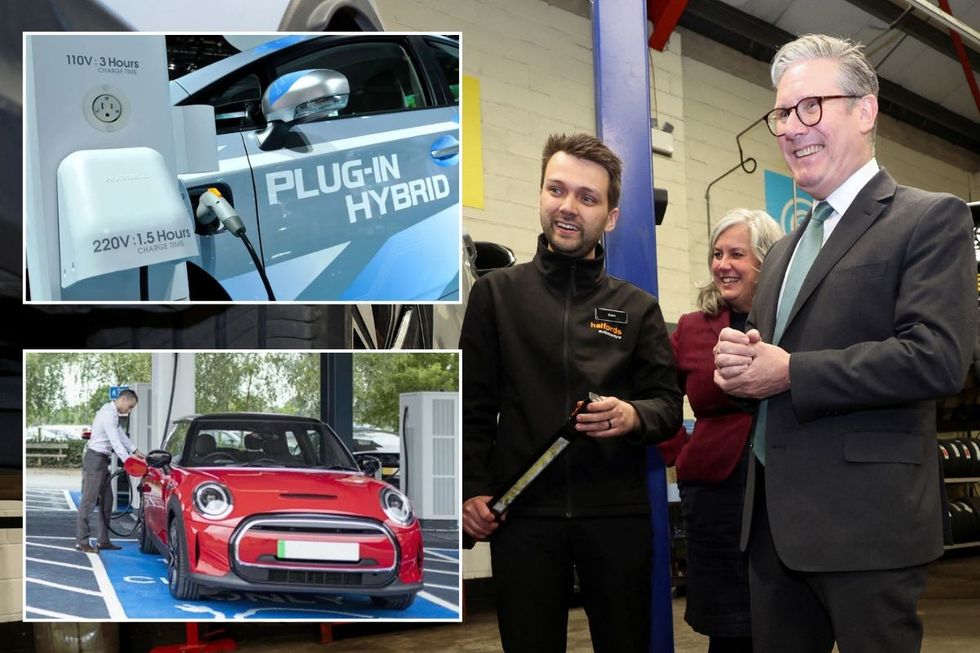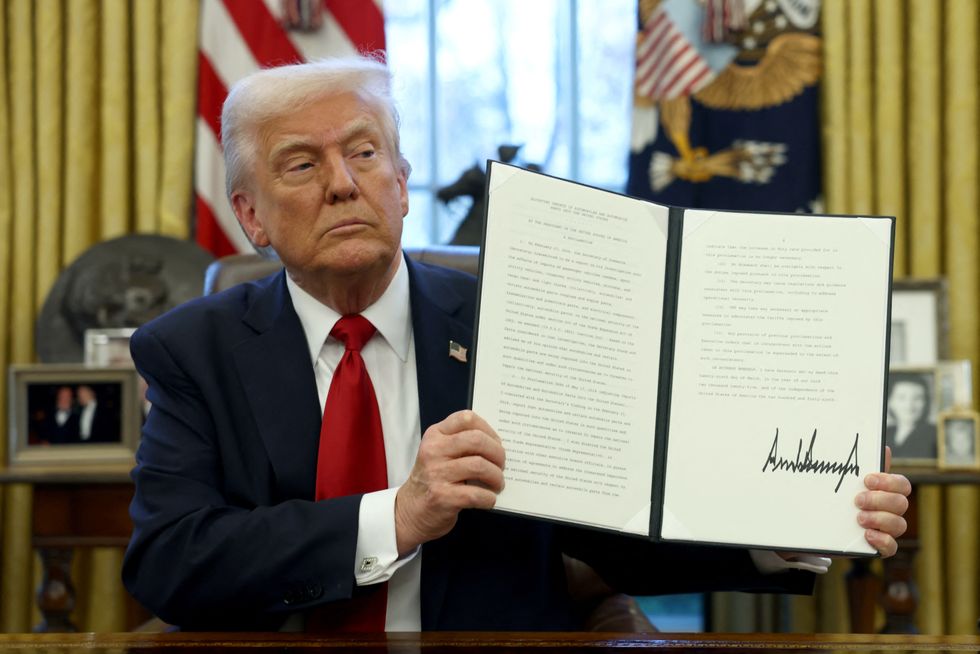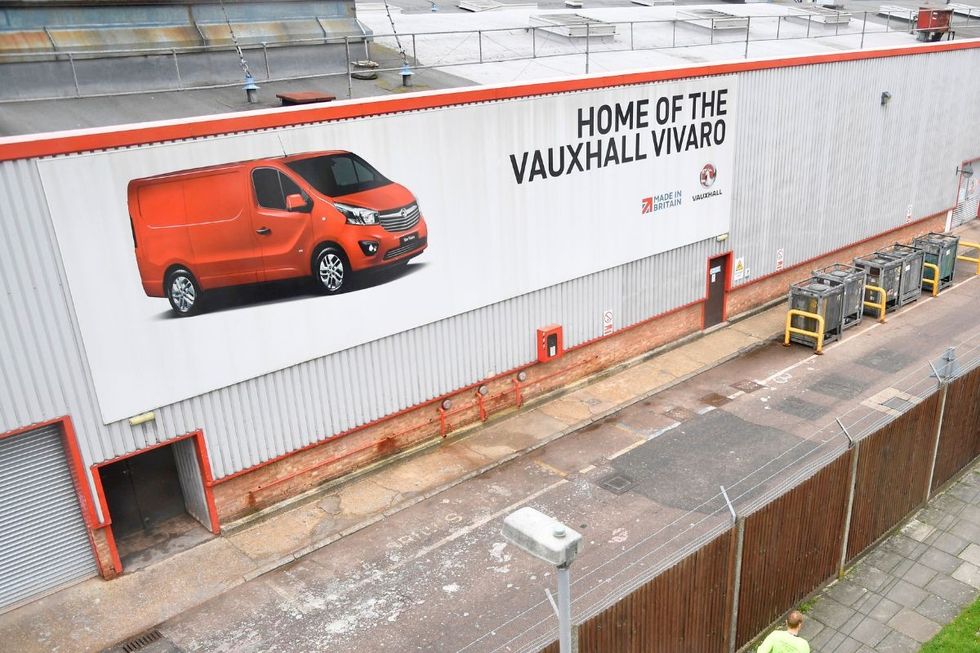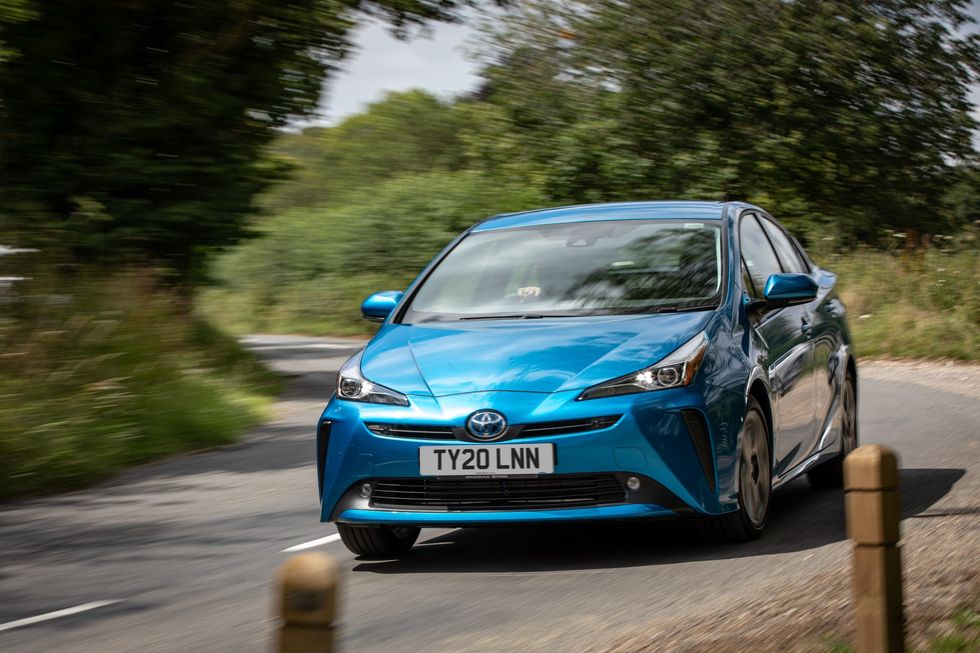WATCH: Danny Kelly hits out at ZEV mandate - 'It’s bad for the consumer!'
GB NEWS
'Hybrid technology may have been a game-changer two decades ago, but it's looking increasingly outdated in today’s car market'
Don't Miss
Most Read
Trending on GB News
The Government's decision to amend the terms of the Zero Emission Vehicle (ZEV) mandate has been met with a mixed reaction from the industry as Prime Minister Keir Starmer attempts to shield the sector from growing global uncertainty.
As part of the new changes to the ZEV mandate, Labour will allow the sale of hybrid cars, like the Toyota Prius and Nissan e-Power, until 2035, while internal combustion engine vehicles will be banned at the end of the current decade.
The aim of the new targets is to sell more electric vehicles in later years when demand will be higher, despite EVs making up almost one in five new registrations in March, with nearly 70,000 new EVs hitting the road.
Prime Minister Keir Starmer confirmed that the new measures would help support the industry at a time when manufacturers are considering their future in the United States following President Donald Trump's tariffs.
Do you have a story you'd like to share? Get in touch by emailingmotoring@gbnews.uk

The sale of hybrid vehicles will be allowed until 2035 under new rules
PA/GETTY
Jaguar Land Rover has already confirmed that it will "pause" shipments to the United States after the President introduced a 25 per cent tariff on all foreign cars imported into the US.
Reacting to the ZEV mandate changes, Mike Hawes, chief executive of the Society of Motor Manufacturers and Traders (SMMT), said the Government was right to listen to the industry, and praised Labour for responding quickly to the shifting global trade landscape.
He said: "[The] industry remains committed to decarbonising road transport, but the ZEV mandate targets are incredibly challenging, especially with a paucity of consumer demand and geopolitical upheaval.
"Growing EV demand to the levels needed still requires equally bold fiscal incentives, however, to give motorists full confidence to switch.
"UK-US negotiations must continue at pace, while the long-awaited industrial and trade strategies should prioritise automotive and be delivered at speed."

Donald Trump confirmed that a 25 per cent tariff would apply to all foreign car imports
REUTERSHawes added that a "package of measures" is needed to support manufacturing following a turbulent last 12 months, which saw the closure of historic factories and the delay of investment.
Stellantis confirmed that its Vauxhall van plant in Luton would be closing, despite pledging that development of electric vehicles would take place this year, with EV production now moving to its Ellesmere Port facility.
BMW also paused a planned £600million investment into its Mini Oxford factory, citing global instability and a lack of consumer demand in zero emission vehicles.
Dan Caesar, CEO of Electric Vehicles UK, said there were two certainties in the automotive sector, namely that China is set to establish itself as the biggest car exporter in the world and that "vehicles with a plug" will dominate market share from the end of the decade.
He added: "While there's some cautious reasons to be optimistic about the UK’s trajectory, and its ZEV mandate, its dilution is in stark contrast to the accelerating ambition of the Chinese and others.

Stellantis confirmed that the Vauxhall factory in Luton closed last week
REUTERS"UK-based automakers need to fully embrace battery electric or be significantly diminished in time, running the risk of continued job losses."
There was similar concern around hybrid vehicle technology from FairCharge founder Quentin Willson, who said hybrids, which are mainly powered by internal combustion engines, should not be included in the mandate until 2035.
Ginny Buckley, chief executive of Electrifying.com, echoed these calls, adding: "Hybrid technology may have been a game-changer two decades ago, but it's looking increasingly outdated in today’s car market.
"The record EV sales in March show that UK drivers are embracing the benefits of going electric - lower running costs, a smoother, quieter driving experience, and cleaner air in our towns and cities. Hybrids simply can’t compete.
"I believe increasing numbers of buyers will see them for what they are - a compromise from a previous era, no longer fit for purpose in the age of cleaner, more compelling alternatives. Carmakers that continue to push this legacy technology risk becoming the Kodak of the car industry."
LATEST DEVELOPMENTS:
- Labour to ban petrol and diesel car sales by 2030 but will allow hybrids in major electric vehicle law changes
- Highway Code changes would deal with 'key issue' amid calls for drivers to face regular 'assessment'
- Major car brands recall 184,000 vehicles amid serious fears of doors opening mid-journey and engine fires
 The Toyota Prius is one of the most popular hybrid vehicles around the world TOYOTA
The Toyota Prius is one of the most popular hybrid vehicles around the world TOYOTASome experts have also warned that the new rules will impact competition and limit the potential savings that drivers could see in the coming years.
Colin Walker, head of transport at the Energy and Climate Intelligence Unit (ECIU), questioned: "Could the higher driving costs associated with petrol cars stifle a growth in activity elsewhere in our economy?
"Will billions in investment in the UK’s charging infrastructure, and its wider economy, be held back?
"Since global EV sales are only going in one direction - up - any risk of the UK falling behind puts hundreds of thousands of jobs at risk."








